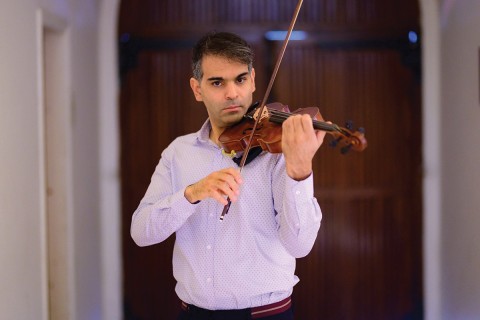Can classical music come out of Nazareth?
Nabeel Ashkar has worked for years to bring Western art music to Arab young people in Galilee.

Nazareth, the childhood home of Jesus, is laden with historical and religious memories. The city has a colorful marketplace, a distinct local cuisine, olive presses, and spice shops. It is the largest Arab city in Israel, with about 60 percent of its inhabitants Muslim and 40 percent Christian. Last December, another element was added to the city’s lively cultural mix: a Festival of Liturgy to mark the Christmas season.
The festival, intended to be an annual event, is the brainchild of a Christian native of Nazareth, Nabeel Abboud Ashkar, and is the climax of years he has spent trying to bring Western classical music into the lives of Arab young people in Galilee and the rest of Israel.
When he was a boy, Ashkar’s parents encouraged him and his brother, Saleem, to study classical music. ‘’Our parents were very passionate about classical music, which at that time in Nazareth was very unusual,” he recalled. Both boys were taught to play the violin and the piano, and weekly they were taken to concerts in Tel Aviv, Jerusalem, or Haifa.





